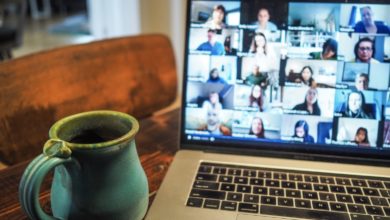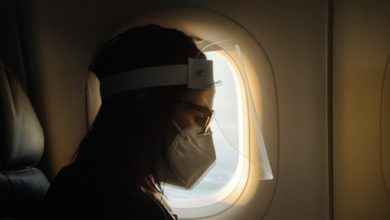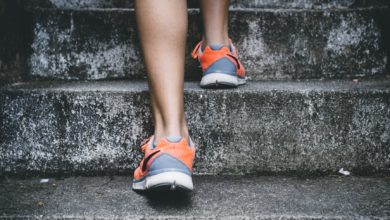[ad_1]

Twenty-three weeks ago, when the gravity of the situation became clear, we started daily reporting on how brands were dealing with the COVID-19 crisis. What’s now becoming clear is that the current climate is one of near-perpetual disruption. So we made the decision to keep on telling the stories of inspiring brand leadership and strategy amid the latest crises in an anxious world. Our goal remains the same: to provide an up-to-the-minute source of information, inspiration and insight on brand moves as they happen.
Adobe has said that it will stop allowing political ads on its platform on August 30th, making it the latest tech company to restrict political advertising in the run-up to the presidential election. The move follows Twitter banning political ads on its website last year, and Google and Facebook adding restrictions to political ads on their platforms. “The Political category no longer aligns to our Ad Cloud business goals,” Adobe spokesperson Ryan Levitt said. As a result, the company will ban all political ads on its Adobe Advertising Cloud – a platform for advertisers to buy space on websites, mobile web and on television. Adobe is a major player in the advertising technology market, which helps serve, buy and sell advertising online and on the mobile web. While not used as frequently as Google’s products, Adobe Advertising Cloud is a major destination for advertisers. The company brought in $3.2 billion in revenue last year from advertising. As a result, political advertisers who don’t want to have to comply with Google’s restrictions will have much more limited options. Google has restrictions on how political ads can be targeted, limiting advertisers to age, gender and zip code and prohibiting targeting based on party affiliation or prior voting history. The company has also just announced that it will limit advertisements that seek to show or seek to distribute hacked materials.
CVS Pharmacy is the first national retailer to offer the ability to pay via Venmo and PayPal in stores. To use the services, customers will be able to scan a QR code and pay from their phones, completing purchases without touching a pen or keypad. It will be available in all U.S. locations beginning this fall. “Companies of all types and sizes are looking for ways to maintain the safety of their customers and employees,” said Mark Britto, evp and chief product officer of PayPal, in a statement. “QR codes complement these and provide retailers an additional payment method that furthers this touch-free mission.” While this new service expands Venmo’s use to a national retailer, the online payment service has already been widely utilized by small businesses through personal profiles for years, and even more since the pandemic began. Other large brands have released their own QR code payment options over the last few months. Walmart Pay just launched a similar service to PayPal’s. Apple Pay is rumored to be launching QR code payments soon with iOS 14. And Amazon Pay has been using it for years, originally to let shoppers pay through their accounts in-store.
Digital publisher Buzzfeed has introduced a standalone website called BuzzFeed Shopping that lets visitors complete purchases without going anywhere else. Many publishers earn so-called affiliate revenue, the slice of revenue they get when they help generate a sale, by linking from product mentions to retailers that finish the transactions. But shopping directly on media sites may become more common as consumer habits change and publishers continue to seek revenue beyond ad sales. BuzzFeed’s move was enabled partly by the relatively recent spread of checkout functionality beyond traditional e-commerce platforms to a range of websites and apps, said Nilla Ali, senior vice president of commerce at BuzzFeed, citing shopping on Instagram in particular. People weren’t inclined to shop outside traditional e-commerce sites just two years ago, Ms. Ali said. “But now with Instagram’s native checkout, and more influencers pushing products through their feed, consumer behavior has shifted,” she said. BuzzFeed will collect consumer data on its new shopping experience with an eye toward eventually personalizing recommendations, Ms. Ali said, citing average order value as one potential variable of interest.
As on example of the shifting dynamics in the retail property market, waterless nail salon Glosslab plans to open seven locations in the next 18 months in New York City, in addition to reopening its two existing locations in the West Village and Flatiron neighborhoods. Rachel Glass, Glosslab founder and CEO, said that there is so much opportunity in the form of available and less expensive commercial real estate that the 18-month timeline could even be reduced. Glass anticipates returning to profitability by the end of August and operating at pre-coronavirus levels of revenue by the end of the year. The real estate opportunities outweigh a second lockdown scenario, she believes. “I do believe the growth outweighs the potential risks,” she said. “Now we are able to negotiate [coronavirus scenarios] upfront in leases, so that takes some stress off.” Glass said that she has seen landlords in New York City offer more flexible leases, including revenue-sharing agreements or smaller base rents. Commercial real estate saw its first annual decline in prices since 2011: U.S. commercial real estate market plunged 68% in the second quarter of the year, according to a U.S. Capital Trends report. Retail prices fared the worst of all commercial sectors (which includes offices and industrial locations), dipping 0.3% from May and down 0.7% over the past year.
Meanwhile, Apple is pushing for huge rent reductions across its UK stores despite its sales soaring to new heights during the lockdown. The tech giant has told landlords of a portion of its 38-store estate in the UK that it wants rents slashed by up to 50% and a rent-free period. In return, it has offered to extend leases by a few years. The tough tactics have caused consternation among property owners. Despite all its stores being forced to close as the pandemic swept around the world, Apple reported last week that second-quarter sales jumped by 11% to a record $59.7bn (£45.6bn). The iPhone-maker posted a profit of $55.3bn last year. Apple is seeking to bring its rents into line with other retailers, many of which are benefiting from cut-price deals as landlords struggle to keep their shopping centres occupied.
UK-based budget airline EasyJet has announced that it will fly more flights than previously planned this summer, due to robust demand for holidays. It now plans to run at 40% capacity, up from 30%, which suggests that some families are shrugging off the risk that governments could impose new quarantines or lockdowns. EasyJet CEO Johan Lundgren reports that summer bookings are stronger than expected. “I am really encouraged that we have seen higher than expected levels of demand with load factor of 84% in July. Our bookings for the remainder of the summer are performing better than expected and as a result we have decided to expand our schedule over the fourth quarter to fly c.40% of capacity. This increased flying will allow us to connect even more customers to family or friends and to take the breaks they have worked hard for.”
Source link






